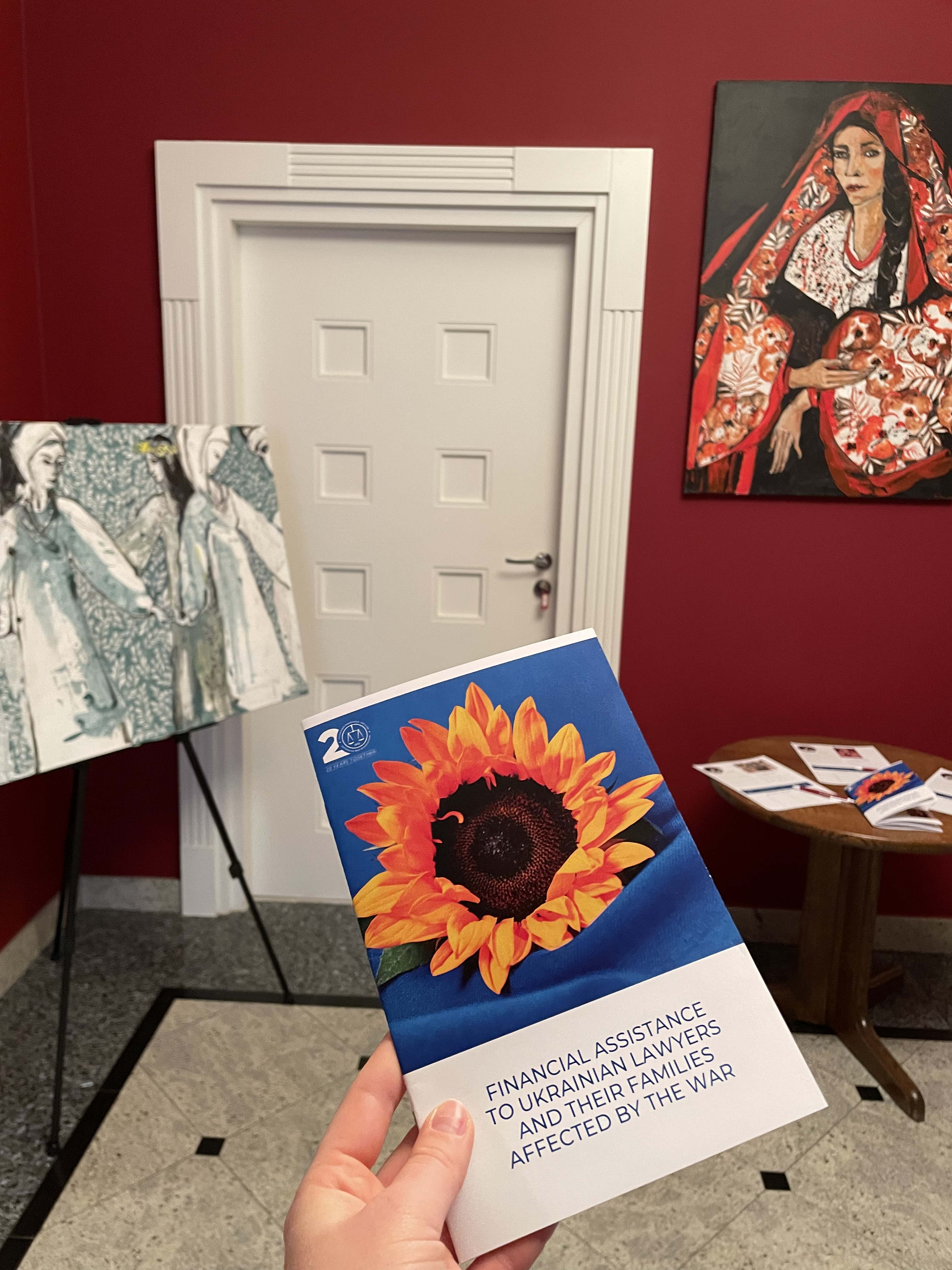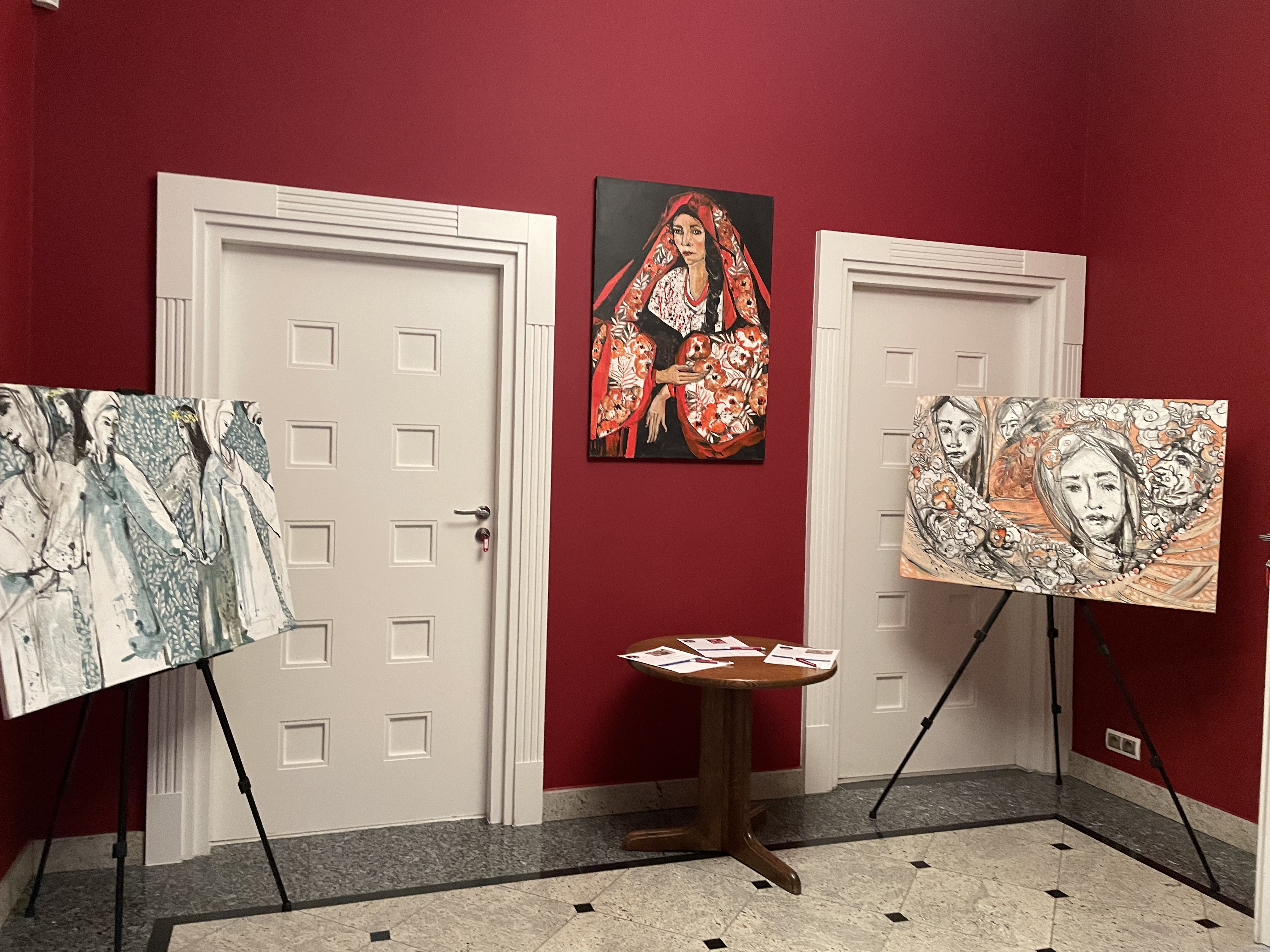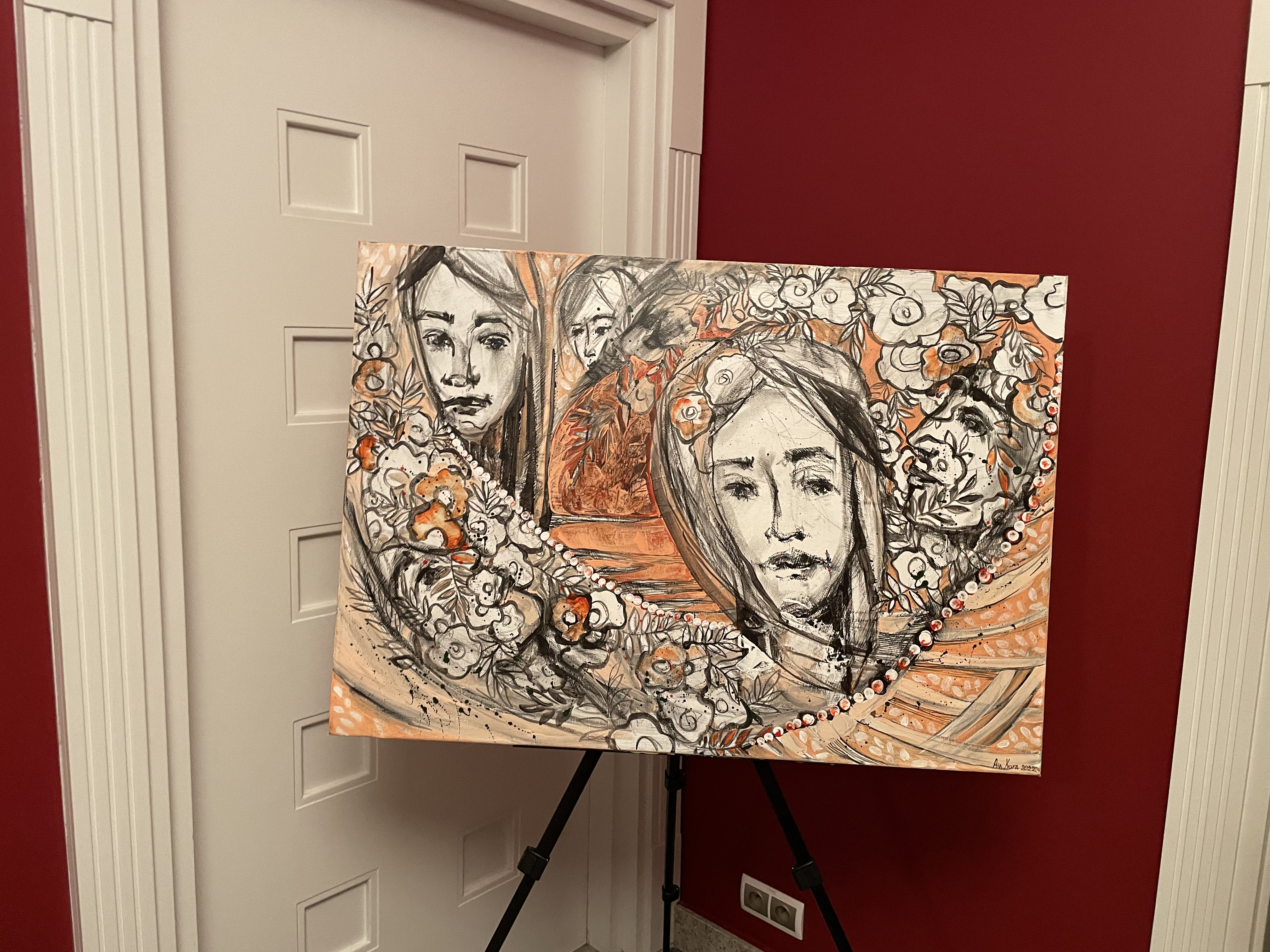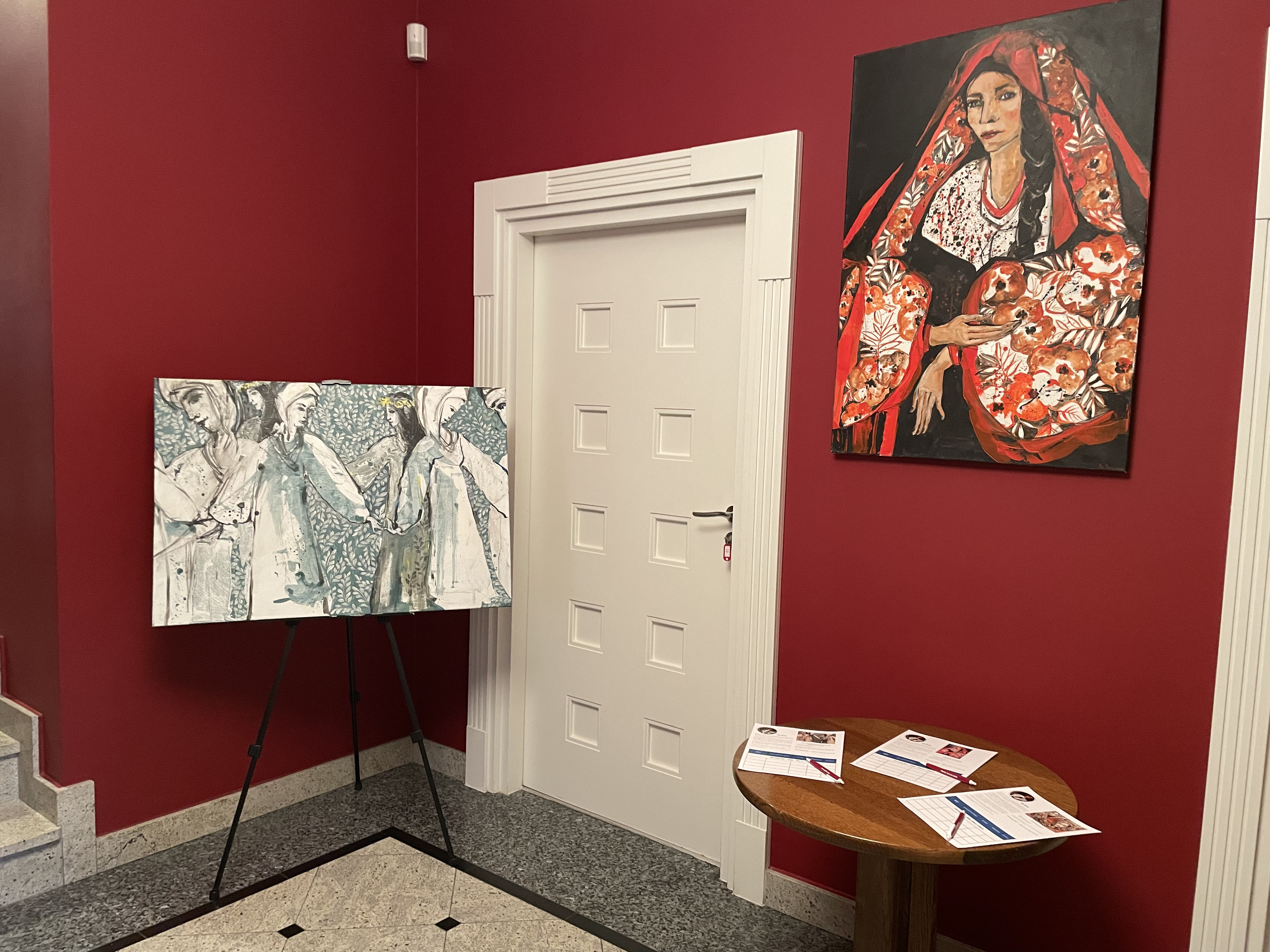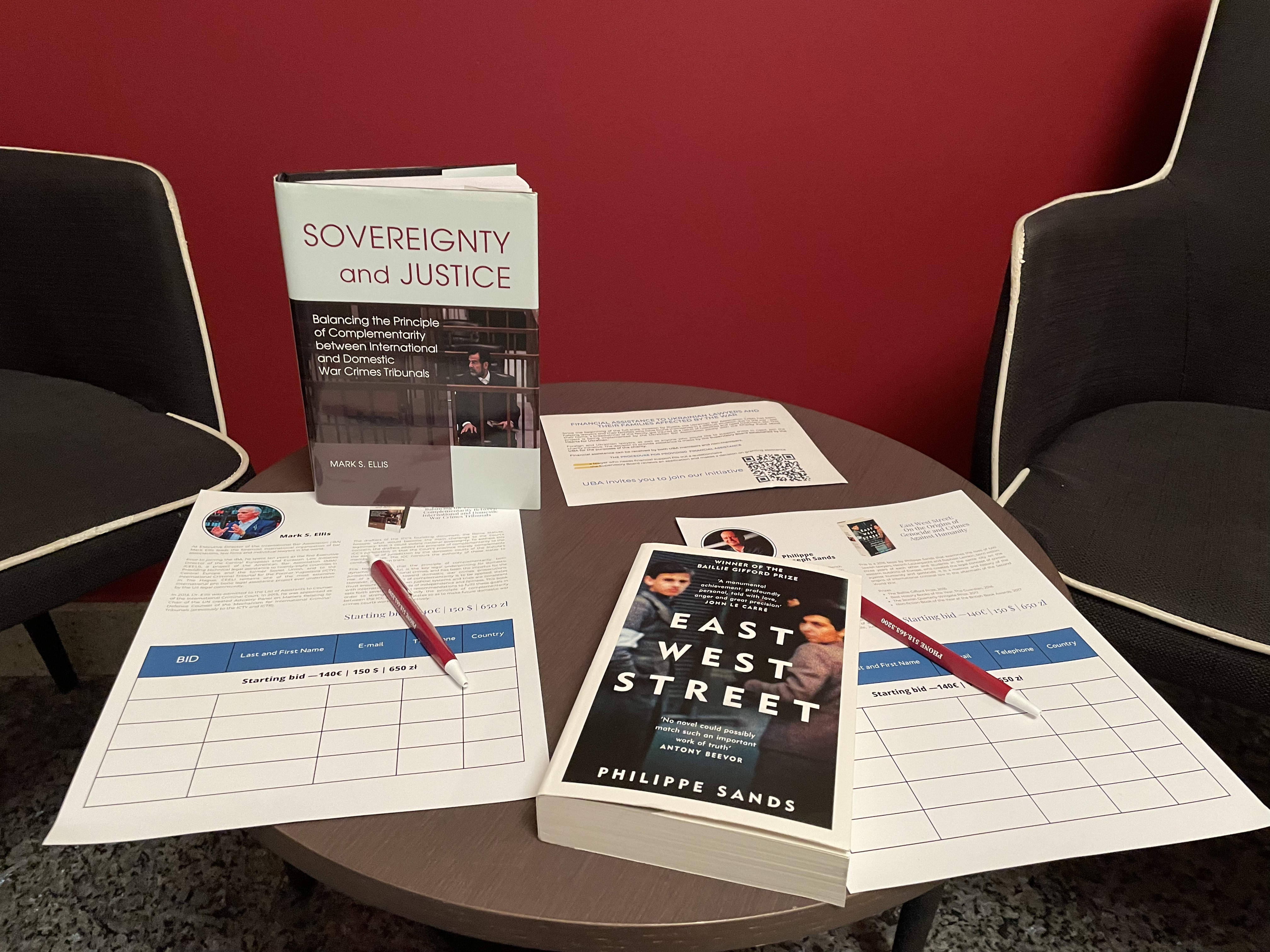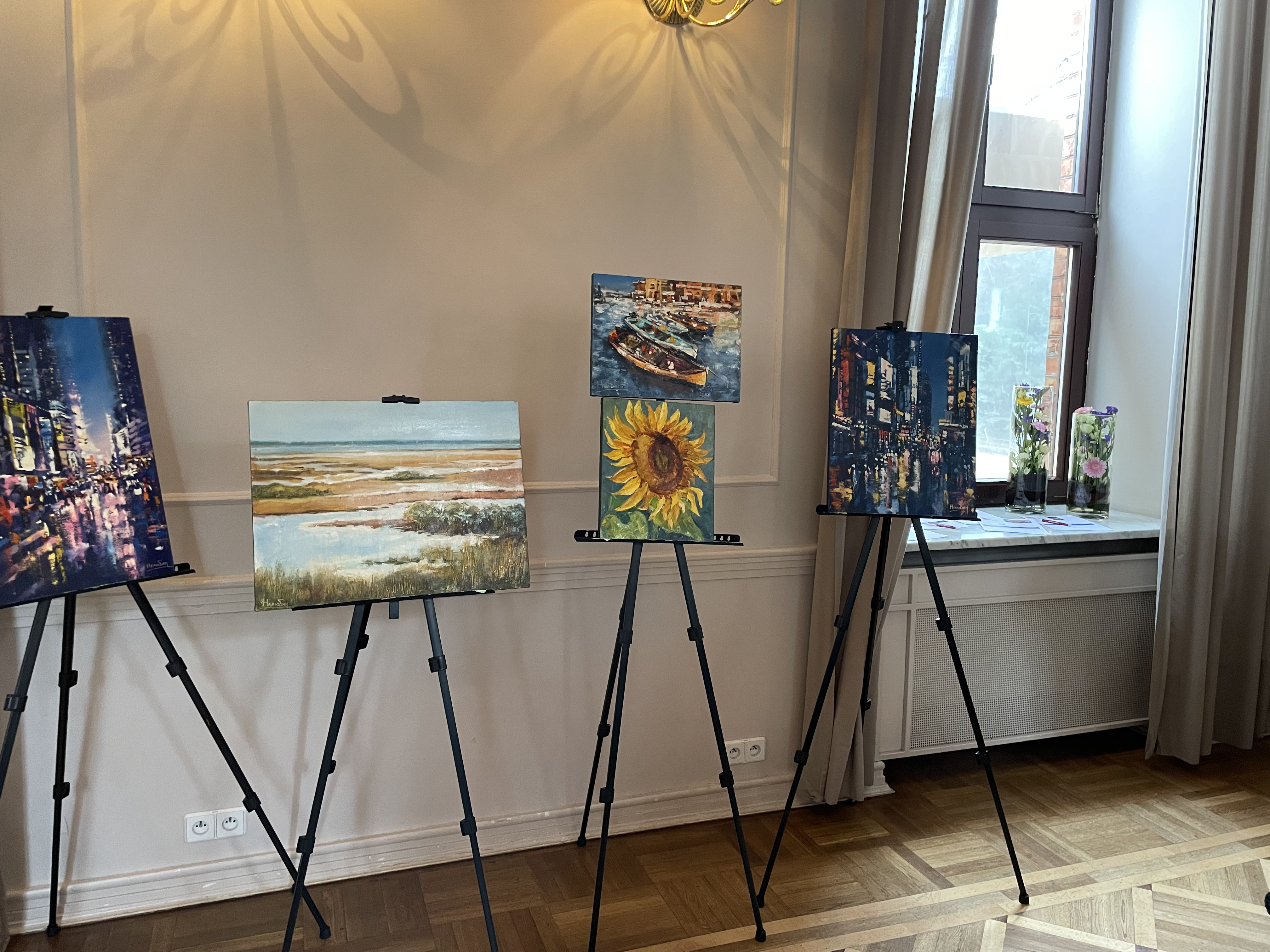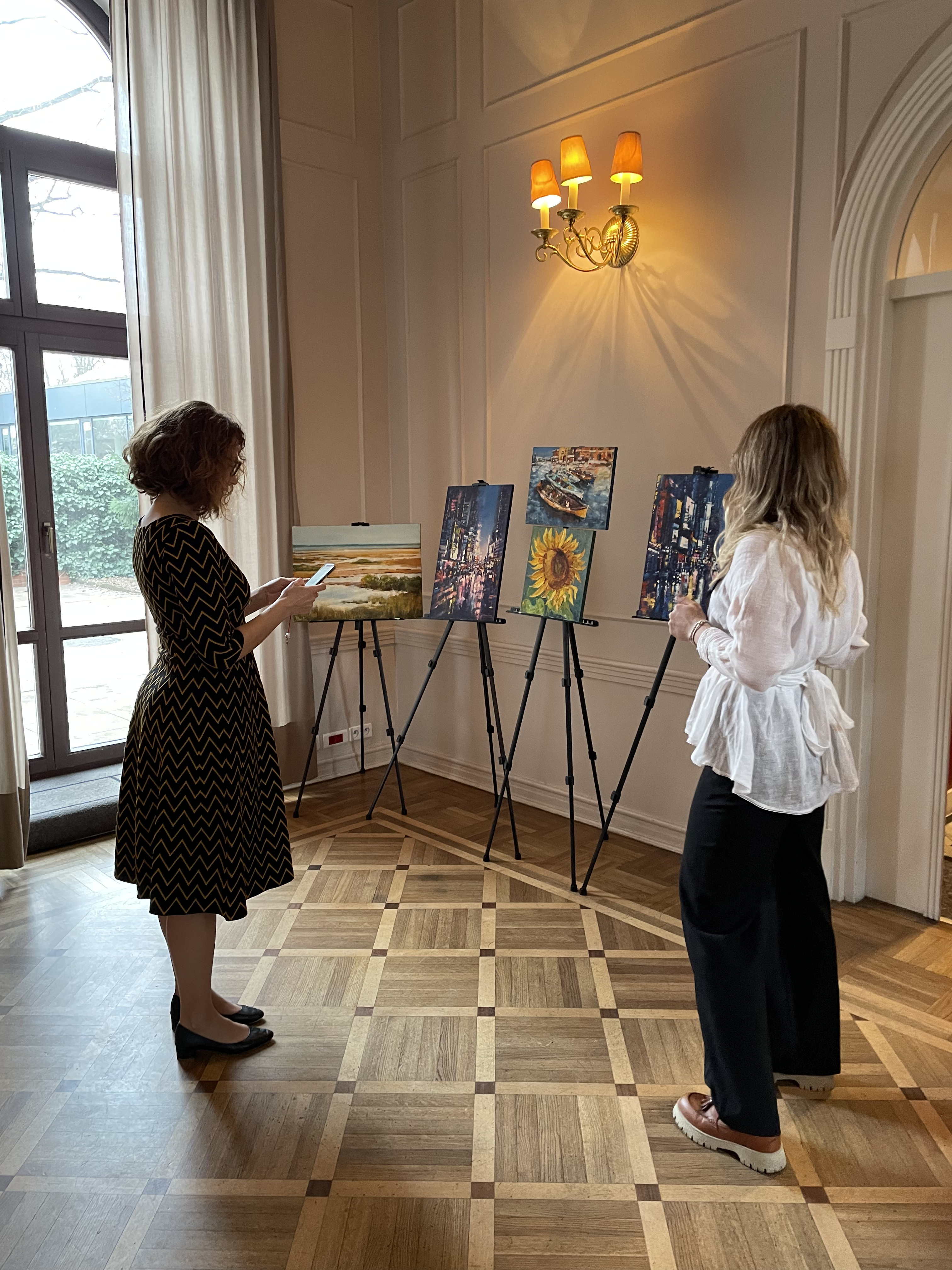"Ukraine: Where Are We Now?". The NYSBA International Section with the support of UBA and USAID held a conference in Warsaw
The international conference "Ukraine: Where Are We Now? Legal Consequences A Year After Russia’s Full-Scale Attack on Ukraine", organized by the International Section of the New York State Bar Association (NYSBA) and its Polish and Ukrainian branches, jointly with the Ukrainian Bar Association and with the support of the USAID Program Justice for All, took place in Warsaw, Poland, on March 30.
The guests of the event were addressed with welcome remarks by:
- Prof. Azish E. Filabi, Chair, The NYSBA International Section; Executive Director, The American College Maguire Center for Ethics in Financial Services;
- David Vaughn, Chief of Party, USAID Program Justice for All, Ukraine.
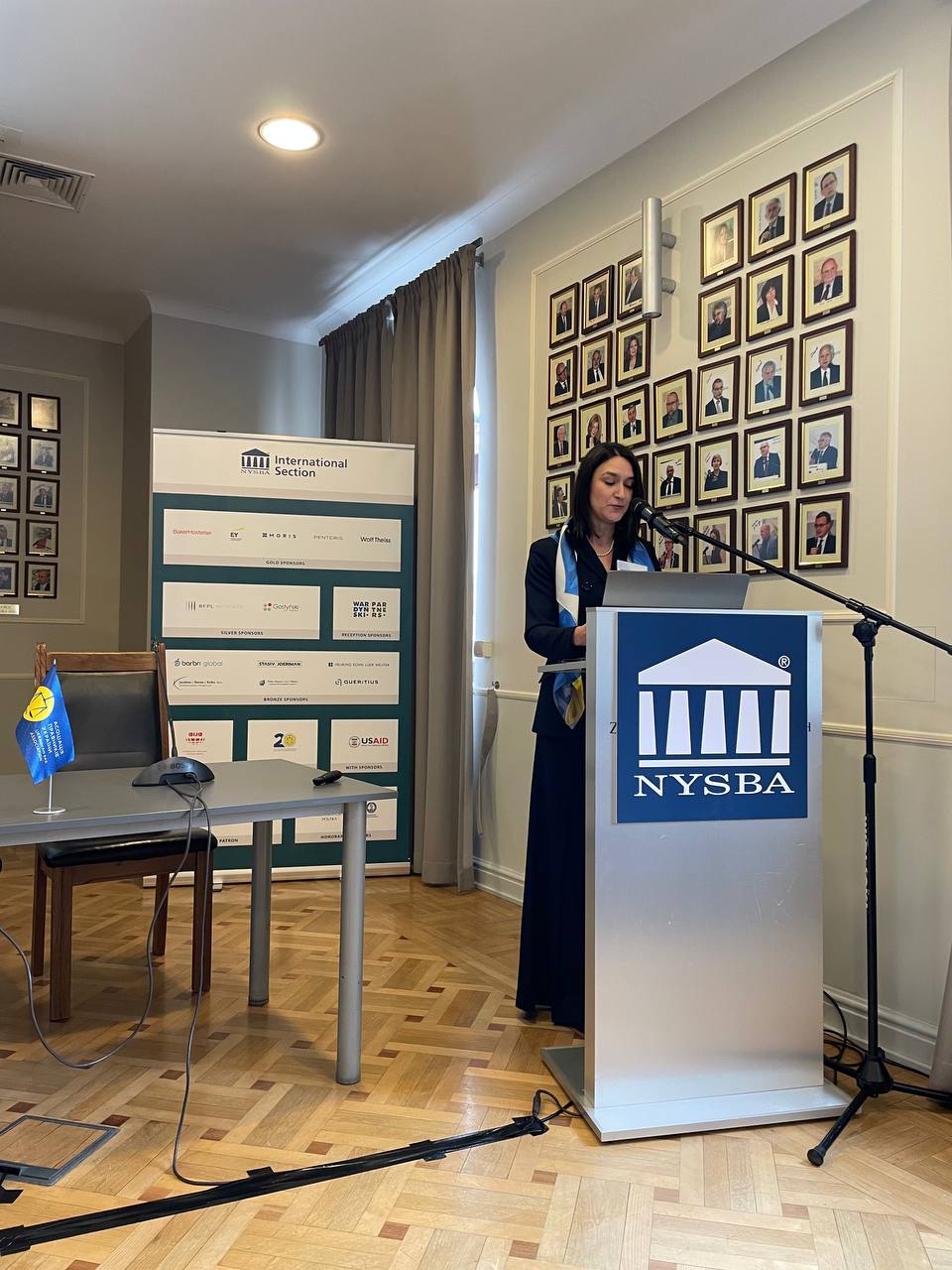
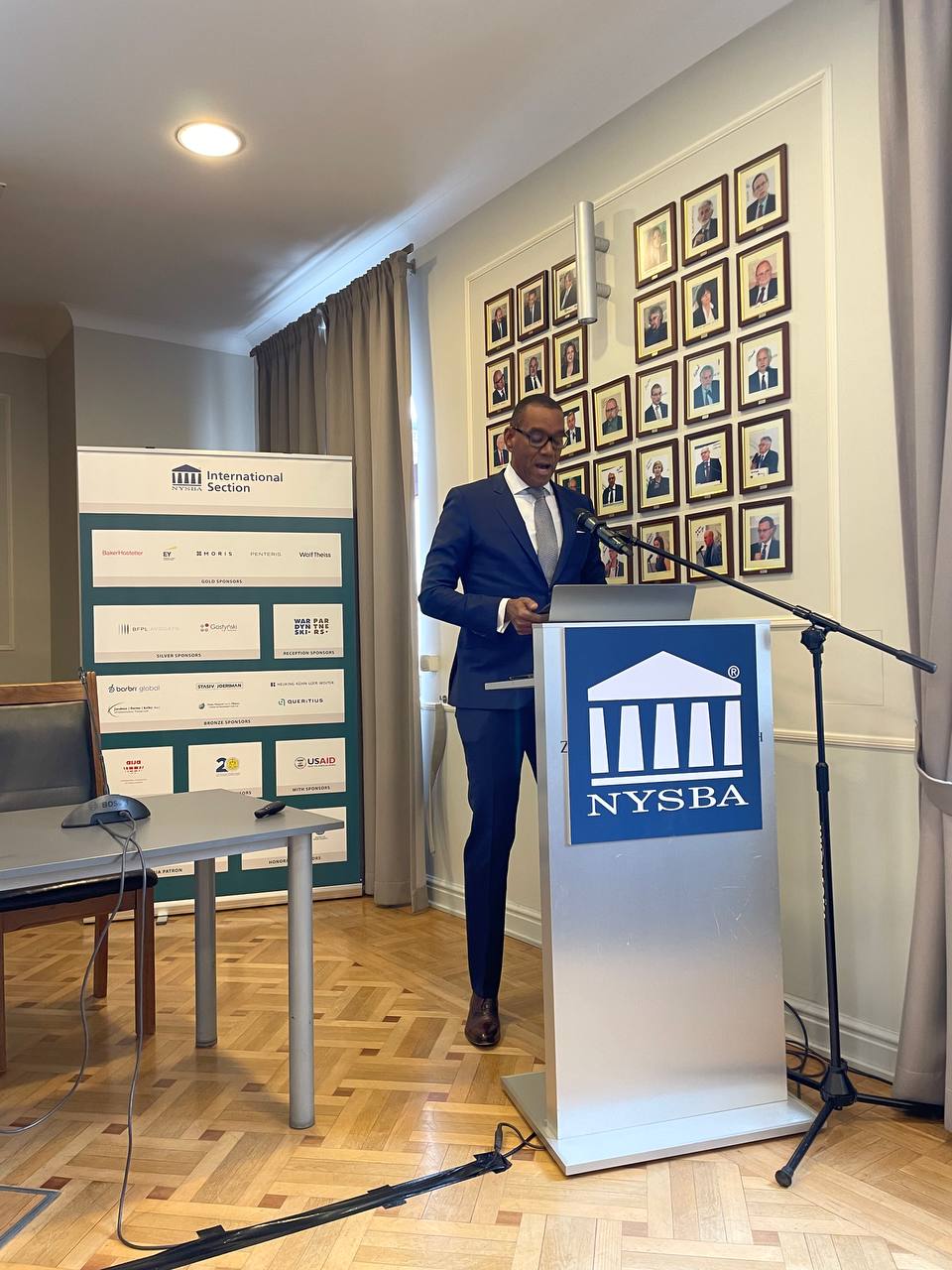
The first session was devoted to the prosecution of crimes against Ukraine as a driver of evolution of international criminal law. The speakers analyzed how the Russian aggression against Ukraine impacted international criminal and humanitarian law and the practice of international judicial institutions. Experts also ventured to predict the long-term consequences of the war for international law and order.
The moderators of the session were Inna Liniova, Executive Director, UBA, and Szymon Gostyński, Gostyński & Partners, Kraków, Poland. Reports were made by:
- Dr. Anna Adamska-Gallant, Kancelaria Adwokacka, Lublin, Poland; International Key Expert, The EU-funded Project Pravo-Justice, Kyiv, Ukraine;
- Gaiane Nuridzhanian, National University of Kyiv-Mohyla Academy in Ukraine and UiT — The Arctic University of Norway, Tromsø, Norway;
- Marie O’Leary, Office of the Public Counsel for the Defense (OPCD), International Criminal Court (ICC).
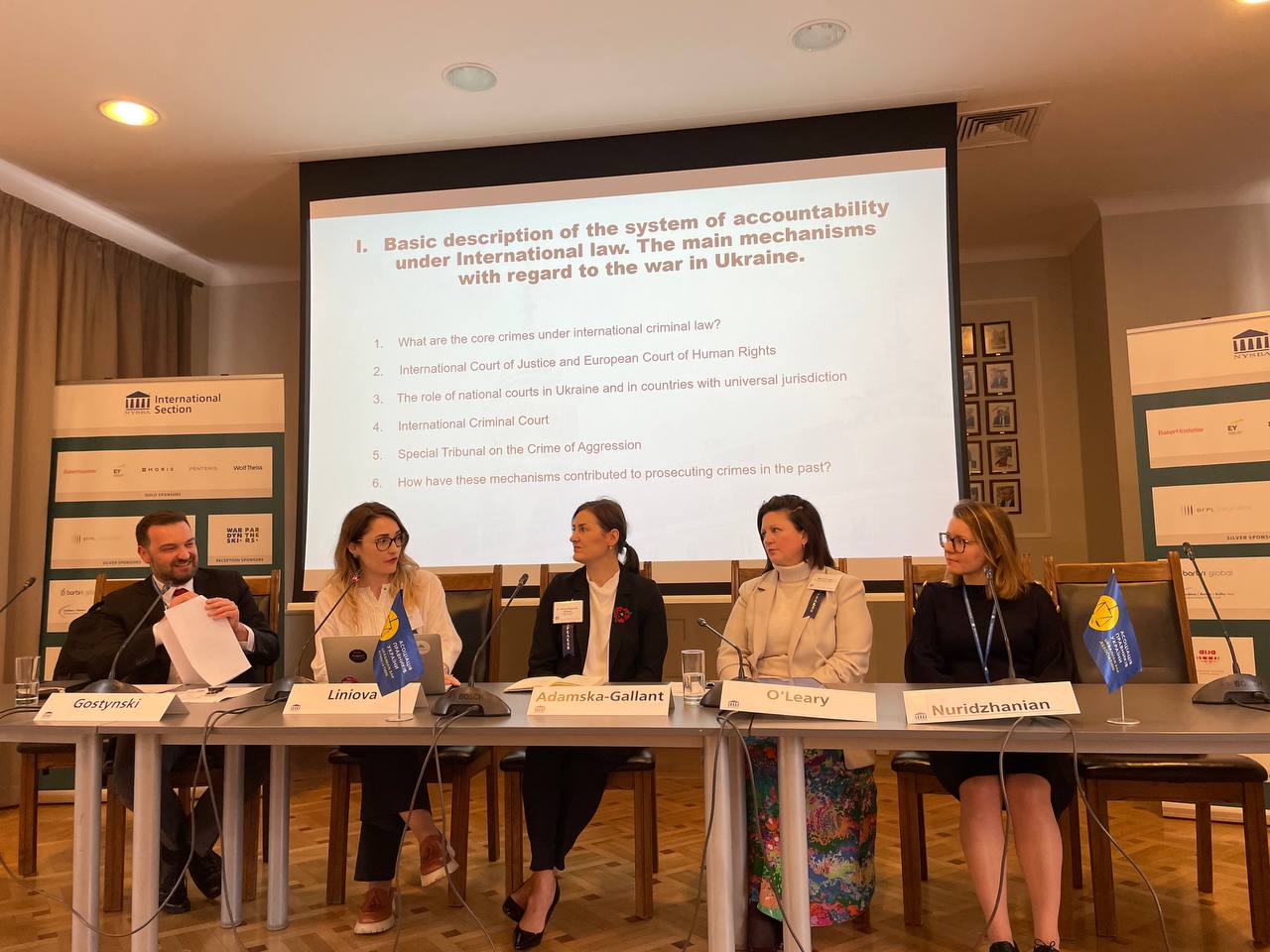
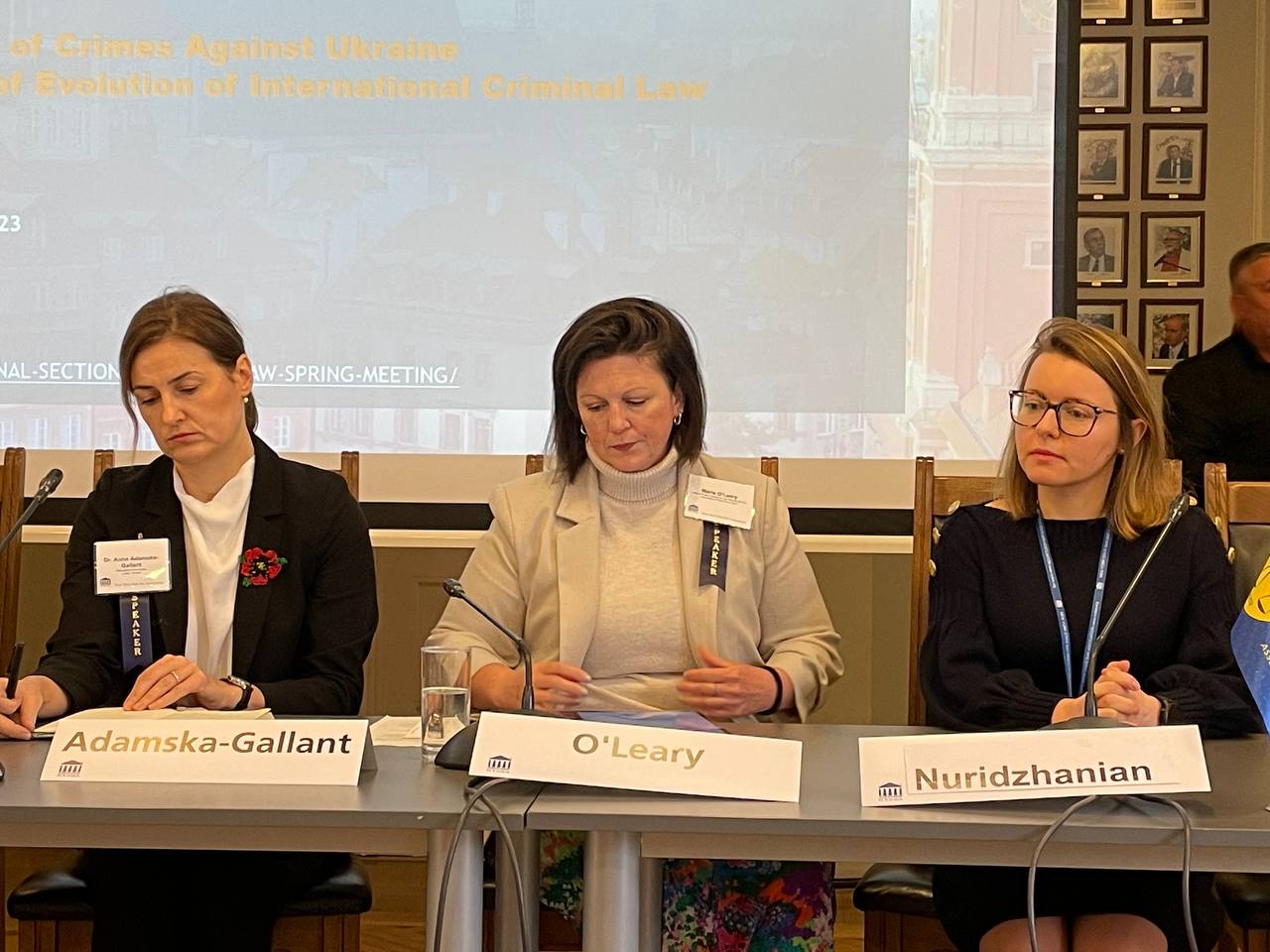
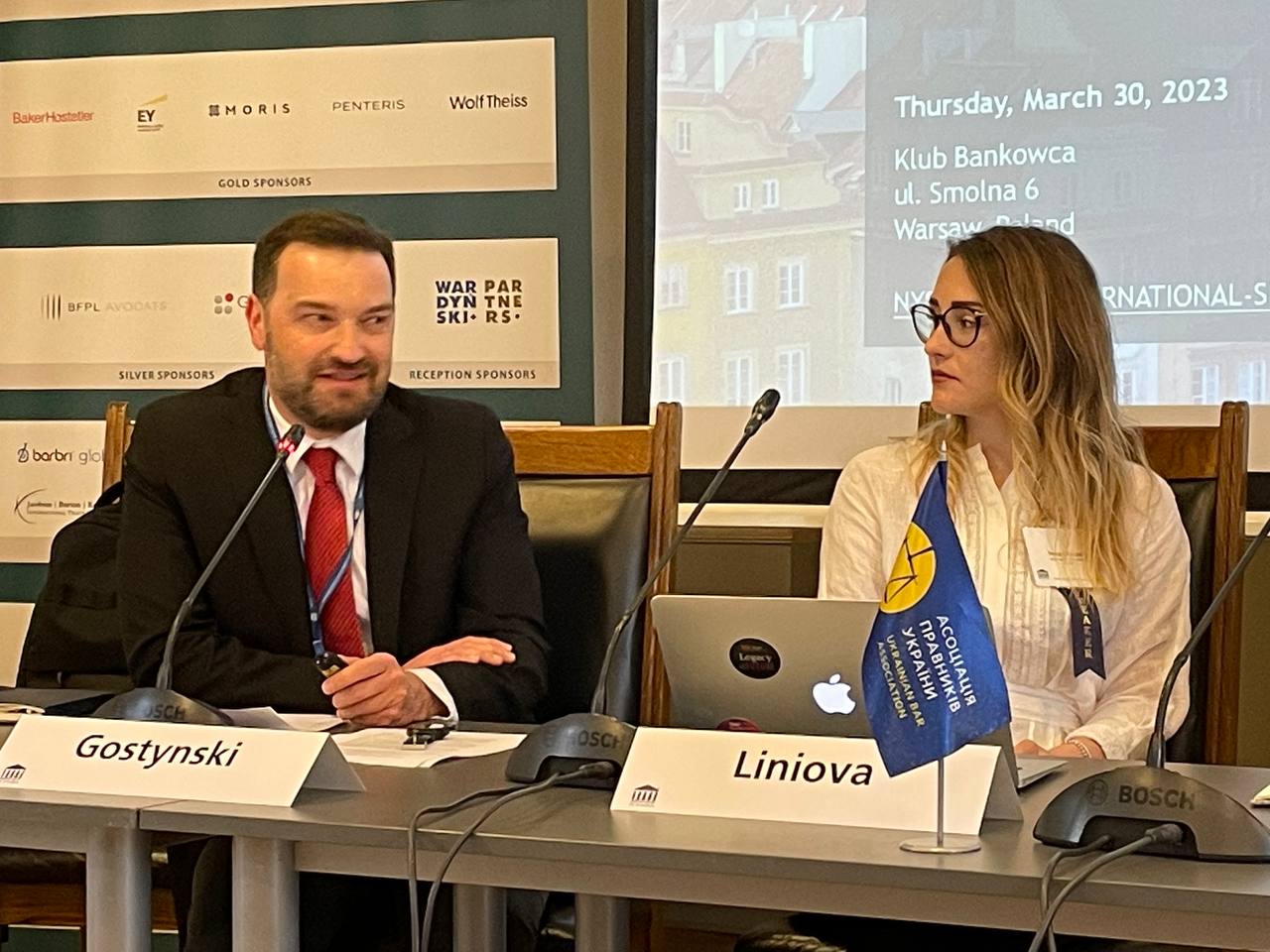
During the second session, participants discussed how the world has adjusted to the sanctions imposed on Russia and Belarus for their invasion of Ukraine. Experts discussed how the private and public sectors have adapted to these broad restrictions on trade and have been addressing the indirect impacts on trade with and through other countries. Also highlighted were key issues to be alert for, issues that many companies might be overlooking, and where the sanctions are likely headed next.
The session was moderated by Glen N. Kelley, Jacobson Burton Kelley PLLC, New York, NY, and Joanna Krakowiak, Wardyński & Partners, Warsaw, Poland. The speakers of the panel discussion were:
- Dr. Matthias Creydt, Founder, Creydt Law, Munich, Germany;
- Carolina Dackö, Partner, Mannheimer Swartling, Gothenburg, Sweden;
- Prof. Marcin J. Menkes, Warsaw School of Economics, Warsaw, Poland;
- Tomasz Dyrda, Partner, Ernst & Young, Warsaw, Poland.
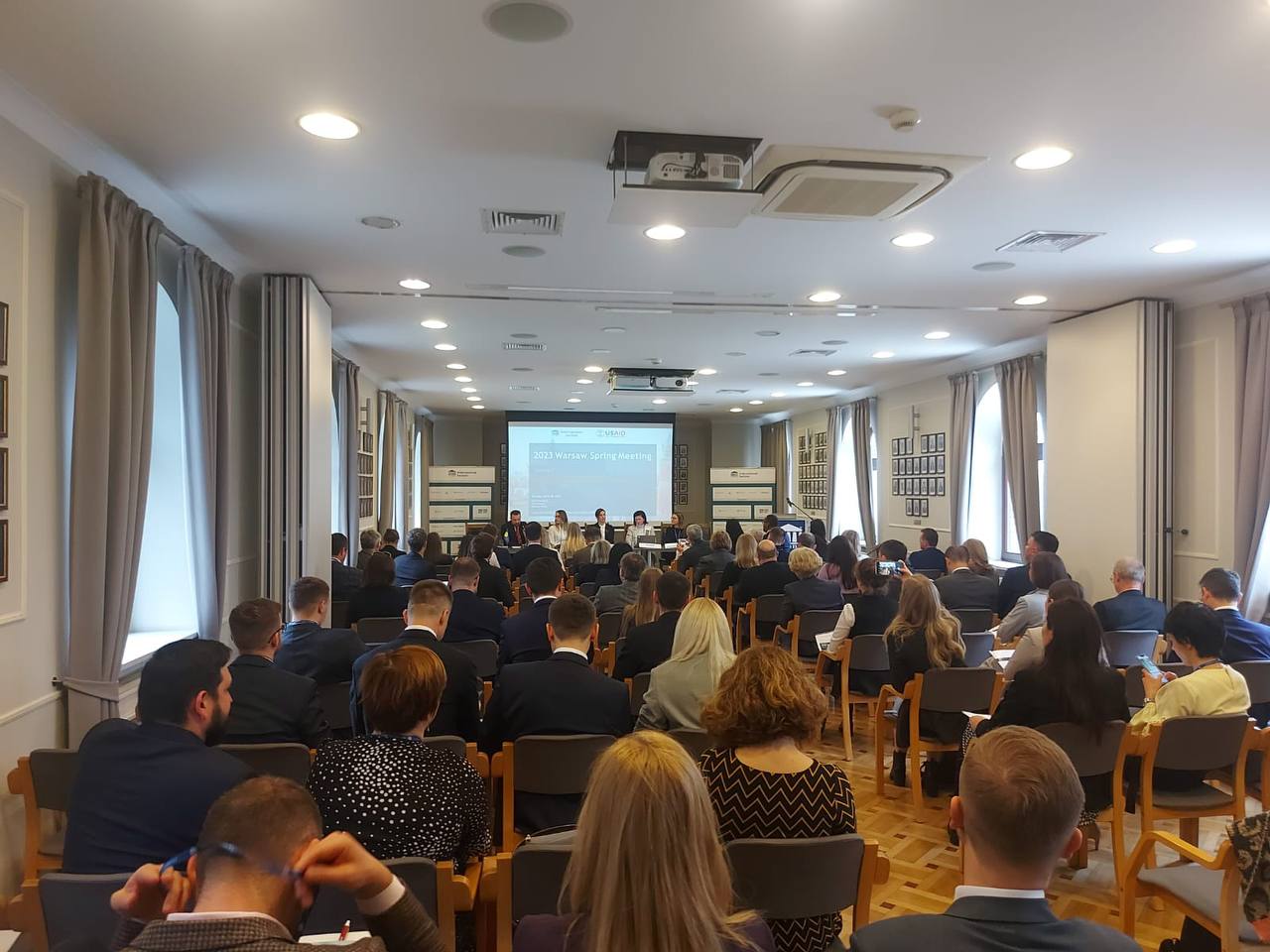
The topic of the third session was the compensation for economic damages inflicted by the Russian invasion of Ukraine. Panelists considered potential state-to-state and private approaches to compensating these economic damages. In particular, legal mechanisms potentially available to individuals and businesses seeking compensation were discussed, including proposals for the establishment of an international compensation \ mechanism, the role of litigation and investor-state arbitration under international investment treaties, and lessons learned from claims arising from Russia’s 2014 invasion of Crimea, as well as the practical prospects for private claimants.
The session was moderated by Carlos Ramos-Mrosovsky, Baker & Hostetler LLP, New York, NY, and Serhiy Hoshovsky, Hoshovsky Law Firm, New York, NY. The participants listened to the reports of the following speakers:
- Svitlana Romanova, Metinvest Holding, Kyiv, Ukraine;
- Natalia Petrik, Deputy Secretary General, SCC Arbitration Institute, Stockholm, Sweden;
- Ivan Horodyskyy, a member of the UBA Board; Dnistrianskyi Center, Lviv, Ukraine.
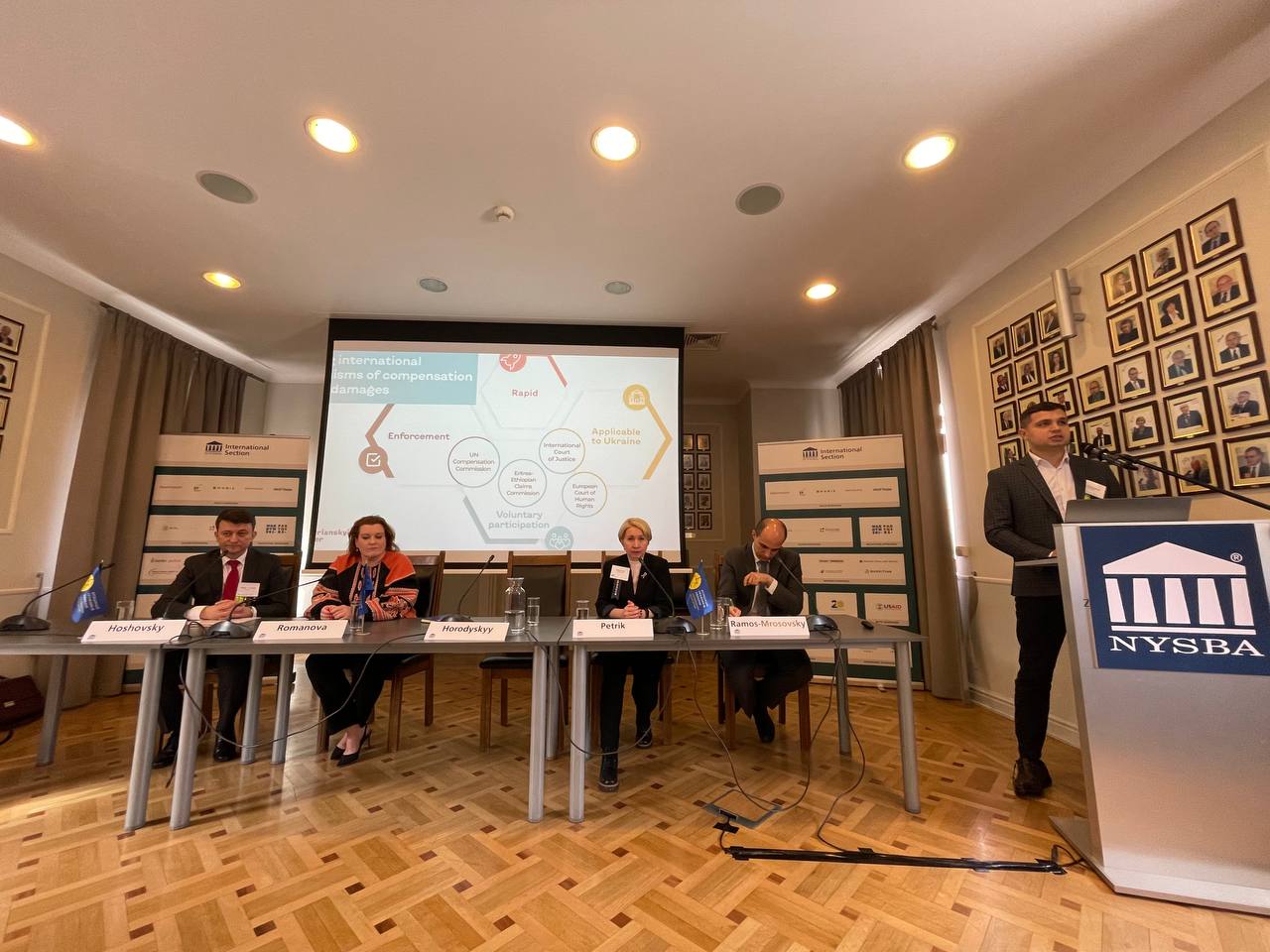
In his speech, Ivan Horodyskyy presented the current vision of a new comprehensive compensation mechanism for Ukraine. He emphasized that currently there are no universal approaches to compensation for war damages, nor corresponding mechanisms. Those challenges that arise in this regard are resolved ad hoc or within the framework of international justice, or special mechanisms are created for this. At the same time, these mechanisms are not fast and involve voluntary participation of the parties and agreement to implement decisions, which is unbelievable in the case of Russia now.
"Therefore, Ukraine is currently actively working on the development of a special mechanism for compensation at the national level. The government and parliament are working on the creation of national instruments. Law enforcement agencies document damages. The Office of the Prosecutor General and the Office of the President are involved in the search for sanctioned assets abroad, and the Ministry of Justice and the High Anti-Corruption Court ensure the confiscation of assets of Russians in Ukraine. Finally, the Office of the President and the Ministry of Justice are actively working on the creation of an international mechanism, and there is the greatest progress in this direction," noted Ivan Horodyskyy.
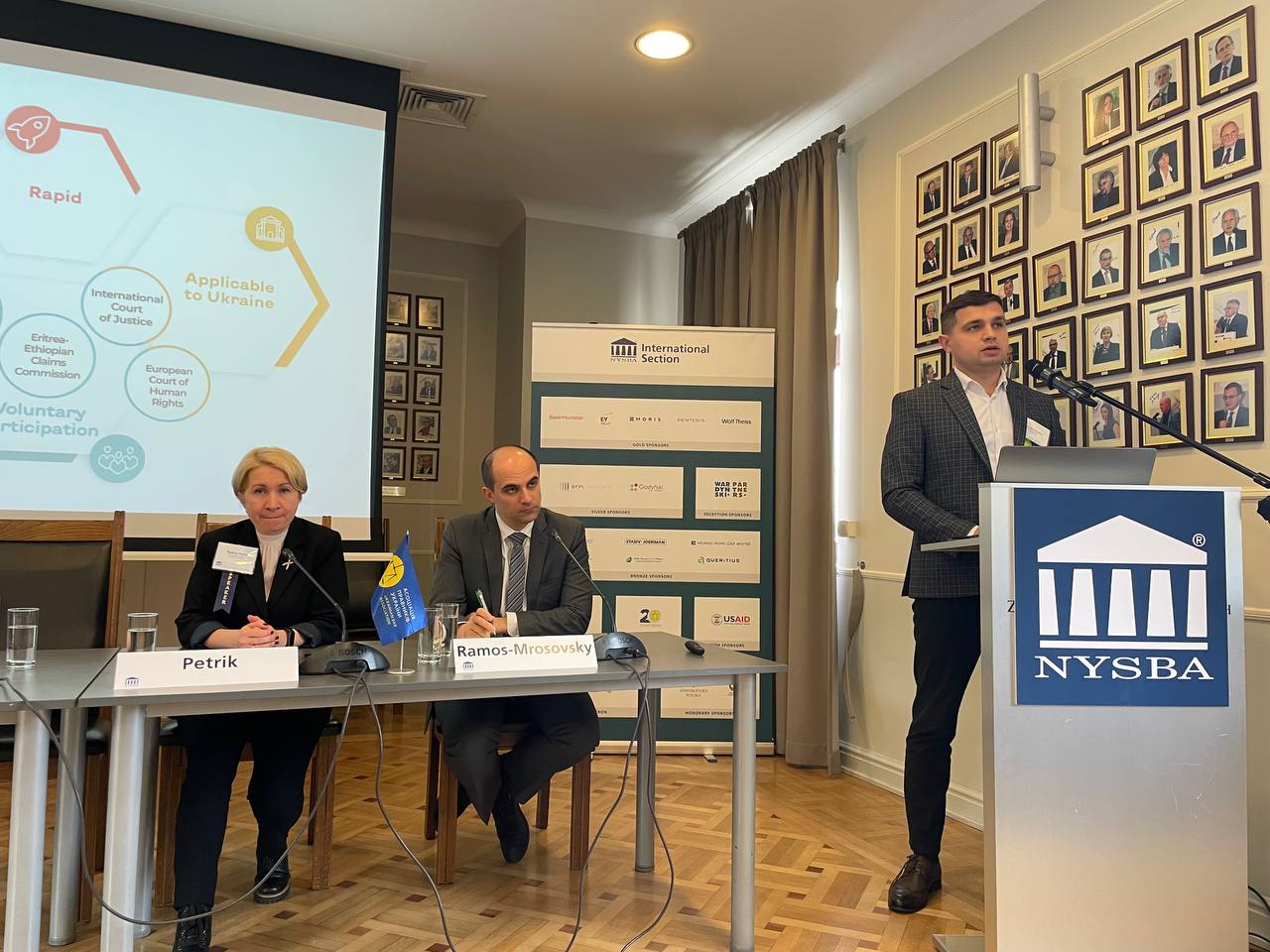
The fourth session was devoted to the realities and prospects of investments into Ukraine and Poland against the background of the full-scale Russian invasion. In particular, attention was paid to a new type of investments triggered by the destruction of critical infrastructure in Ukraine, increased demand in military ammunition and attempts of businesses to diversify the risks.
The panel discussion was moderated by Lana Sinichkina, the UBA member; Arzinger, Kyiv, Ukraine, and Paweł Zdort, Rymarz Zdort, Warsaw, Poland. The following joined the discussion:
- Inna Khomych, Chief Legal Officer, New Post-Center LLC, Kyiv, Ukraine;
- Roman Nikitov, ICU Venture and Tech Investments, Ukraine;
- Lucyna Stańczak, Supervisory Board of BNP Paribas Bank Polska S.A.
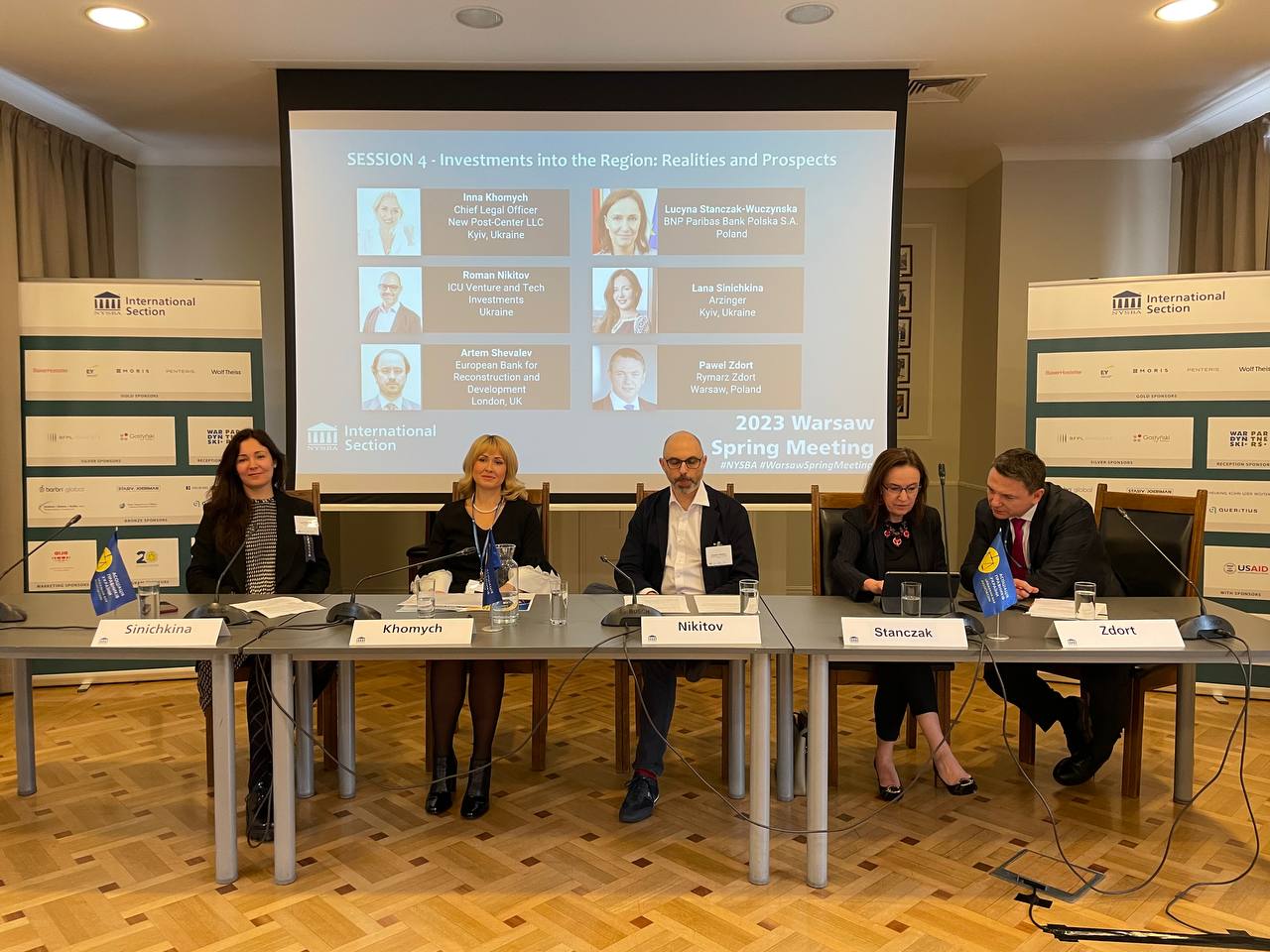
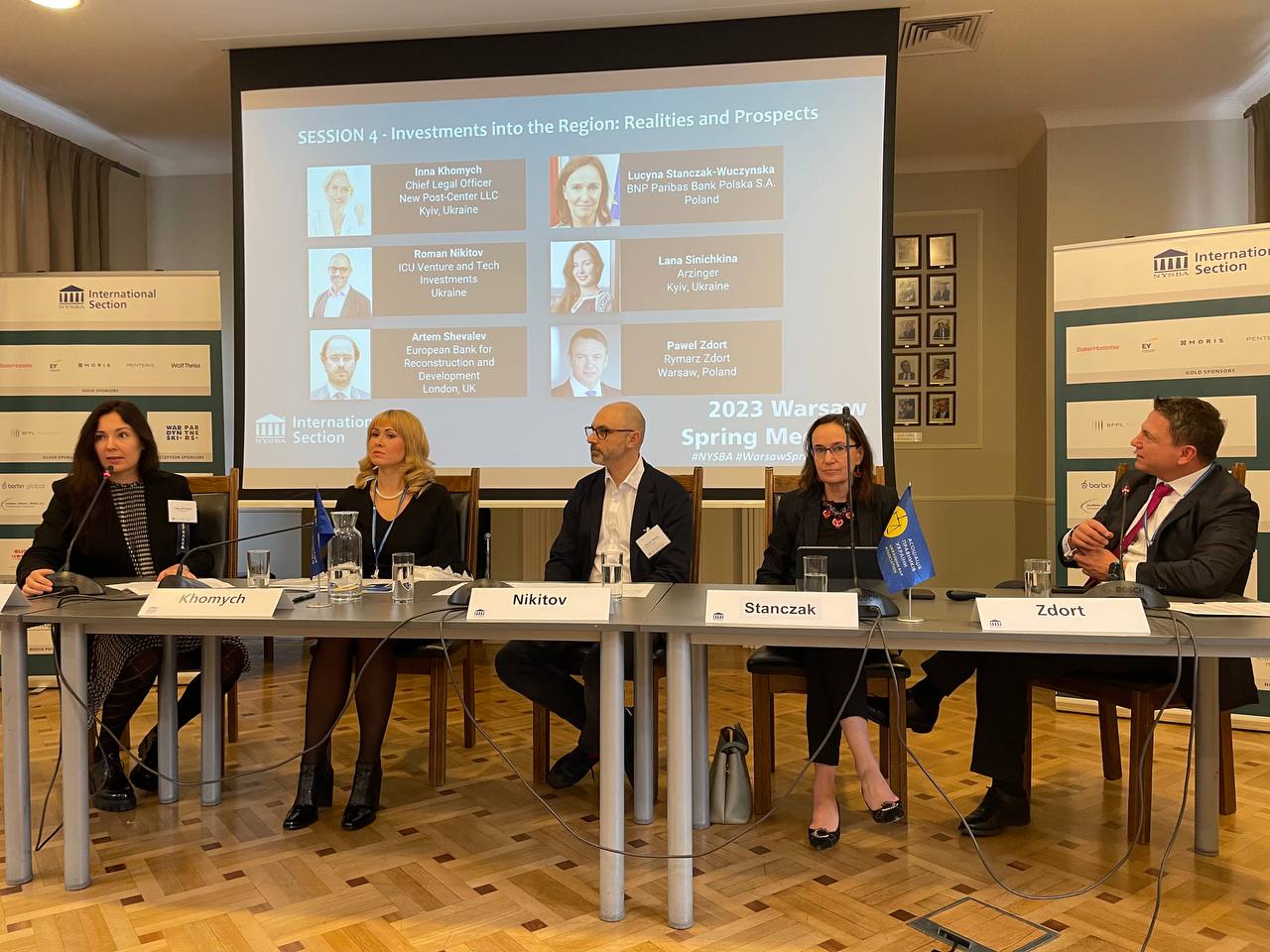
The topic of the fifth, final session was the restructuring of the region and the reconstruction of Ukraine. The participants of the discussion focused on two issues of overriding importance — the role of international financial and governmental institutions, and the strengthening of the rule of law in Ukraine.
The moderators were C. David DeBenedetti, DeBenedetti Majewski Szcześniak, Poland, and Anna Zorya, Rymarz Zdort, Warsaw, Poland. Speakers were:
- Tony Housh, American Chamber of Commerce in Poland;
- Andrzej Tokaj, Penteris, Warsaw, Poland;
- Olga Yeriomina, European Bank for Reconstruction and Development, London, UK;
- Olga Ivlyeva, Wolf Theiss, Kyiv, Ukraine.
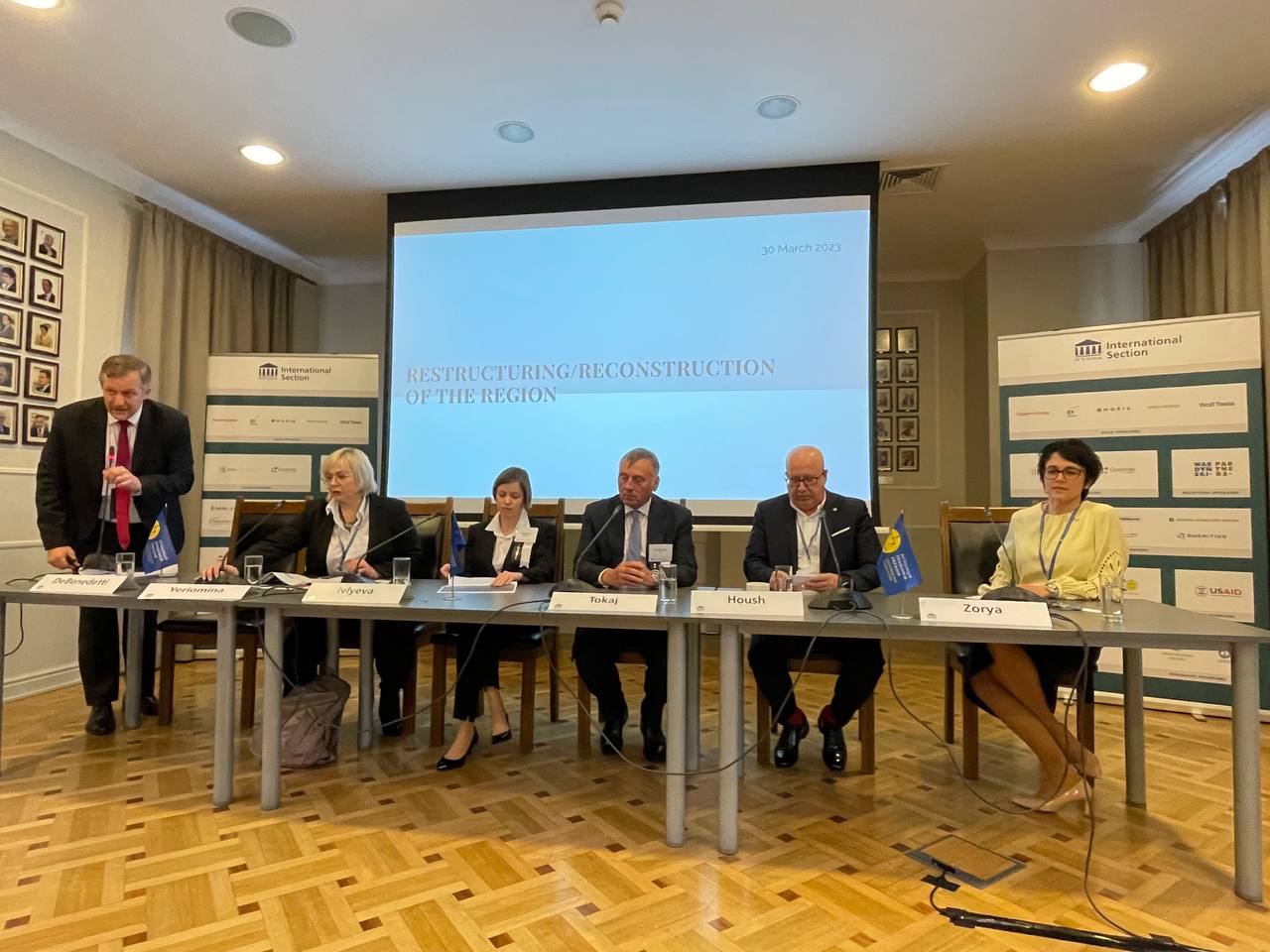
During the conference, a "silent" auction was also held to raise funds for the charitable initiative of the Ukrainian Bar Association — the financial assistance to Ukrainian lawyers and their families who suffered from the war. The auction lots included paintings by modern Ukrainian artists and books by famous lawyers, including Mark Ellis, Executive Director of the International Bar Association (IBA), and Philippe Sands.
